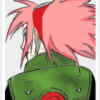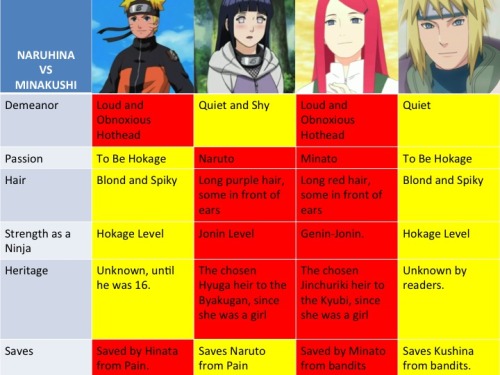You could say that there are two heroines. I don't think there will be a romance ending. If I have to choose one, judging by latest development, it's possible that ichiruki could be the endgame. I mean they do have the development to be one, but it could end in a Yu Yu Hakusho style if shinigami love is not possible. But, due to latest development, yeah. Why you ask?
just wondering since i was confused.  if you dont mind
if you dont mind 
This is a really interesting explanation about love in japanese since in the chapter number 98, the proud failure, when naruto told hinata, "i thought of you as a shy weirdo, but a person like you i really like" since like in japanese is 好き suki, so i freaked out, and researched, and it turns out it depends on the facial expression and intention. and i've been doing research about it since narutos love for sakura has been described as suki and sakuras to naruto, instead of daisuki, but it turns out daisuki isnt important since it wasnt mentioned in this article about boyfriends and girlfriends in japan. Here it is:
Where’s the love?
You may have learned that 好き means ‘like,’ and that the Japanese word for ‘love’ is 愛. This is what your dictionary will probably tell you, but it’s important to understand thatsome Japanese words simply have no precise English equivalent, and vice-versa.
The same word can also have several different nuances depending on the context in which it is used, and it’s rare that all the possible nuances of a Japanese word directly correspond with those of any English word.
The words ‘like’, ‘love’, 好き and 愛 are some of those words. Even though my Japanese boyfriend of two years spoke English impeccably, he liked speaking to me in Japanese and that was the only language we spoke together. At one point I started feeling hurt because he never said ‘I love you’—or at least what I thought was the Japanese equivalent.
I thought the Japanese equivalent was 愛している. When I told my boyfriend this, he replied that most Japanese people had probably never said 愛している to anyone in their lives, or at least not in the same way we say ‘I love you’ in English.
The character 愛 is used in a lot of compound words, such as 愛情 (‘love’ as a noun, not a verb) and 愛犬 (‘beloved dog’). The verb 愛する, however, is generally only used in an exaggerated, almost silly sort of way (like fans shouting 愛してるよー! to their favorite singer on stage) in everyday contexts.
If used in a serious way to describe affection for someone, though, it’s seen as describing a feeling so strong that it’s almost abstract. In fact, when I asked my Japanese boyfriend if he ‘loved’ me (私を愛してるの?), his response was ‘What is love?’ (愛って何?) I was confused and hurt by this at first, but later I learned to understand.
The word 好き can be translated as ‘like,’ such as when I say 「私は緑茶が好きです」 (I like green tea), or 「猫が好きです」 (I like cats). It can, however, also mean ‘love.’ To express feelings of affection for someone, a Japanese person will usually use 好き.
I had to learn to understand that for my Japanese boyfriend, 「好きだよ」 was just as meaningful as my ‘I love you’—but even so, he didn’t feel the need to say it or to hear it all the time.
Japanese people tend to express their emotions in less obvious ways, like through considerate actions or words of thanks. 好き only needs to be said once in a while, because most of the time it’s just understood.
And now I think we can get back to our interrupted love story. You’ve just blurted out 「好きです!付き合ってください!」 Your heart is beating a million miles an hour, but you finally manage to lift your eyes and look across the table to see the object of your affections looking embarrassed, but grinning from ear to ear. Your loved one says just one word: はい (Okay). And that’s all you need to hear.
Edited by Canadian_DJ, 19 July 2013 - 06:25 PM.
![]() Please enjoy yourself.
Please enjoy yourself.





























